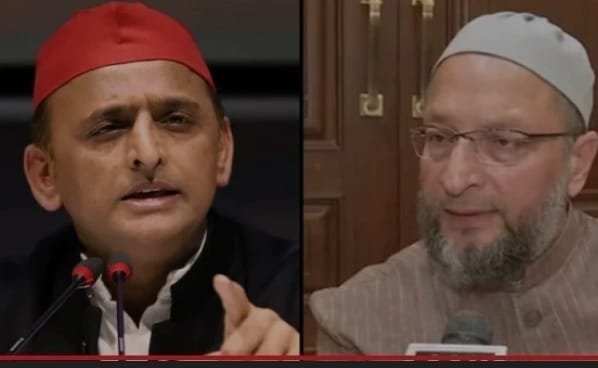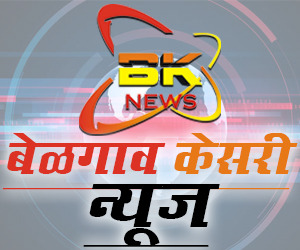- Dozens of SP Candidates Lost in Small Margin of Votes
Hyderabad: The political sector and analysers thought that Chief of the All India Majlis-e-Ittehadul-Muslimeen (AIMIM) Asaduddin Owaisi could be a new ‘Political Face and Hope’ for Muslims of the nation before the assembly election to five states. However, now the ‘Muslim Firebrand’ speakers is being labbled as BJP’s “Vote Cutter of SP” as his party contest helped BJP to reach the target easily.
Muslims of the nation found a ray of hope in Owaisi over his aggressive speeches, defending his religion and targetting the BJP and saffron factions. “We expected much, however, feeling shy as he instead helping to defeat BJP, helped it indirectly by cutting SP votes,” opined the political analysers.
His party, which contested nearly thrice the number of seats in Uttar Pradesh than it did in 2017, has again failed to open its account in the state.
In 2017, AIMIM contested 38 out of the state’s 403 seats and polled around 2 lakh votes — which is just about 0.2 per cent of the voteshare. This time, it fielded 97 seats and did not win even one. The party’s voteshare, however, increased to 0.46 per cent, considering the increase in the number of seats contested too.
For the UP polls, the party was in an alliance with Babu Singh Kushwaha’s Jan Adhikar Party, and the Bharat Mukti Morcha. The AIMIM has roughly won 3.4 lakh votes in the UP assembly elections, according to EC data.
The AIMIM’s lacklustre performance indicates that Owaisi failed to convince UP’s Muslims that he is a strong alternative to the BJP. “Muslims are voting very carefully and their sole focus is to pick someone who can counter the BJP. Owaisi has failed to emerge as that figure,” Ajay Gudavarthy, political analyst and assistant professor at the Centre for Political Studies in Jawaharlal Nehru University (JNU), said.
According to Gudavarthy, Muslims did not believe that the AIMIM offered an “alternative agenda” to regional parties other than “counter-polarisation”. Many Muslims, he said, are also “suspicious” about the party’s alleged tie-up with the BJP to divert Muslim votes from the Samajwadi Party, an allegation the AIMIM has denied.
“The admiration for Owaisi’s speeches were not into votes. And his traction is mostly among certain pockets of educated middle class or youth. Traditional voters, who previously voted for the SP or the Congress, could be continuing with them. They’re not drawn to Owaisi as a strong Muslim face,” he added.
Owaisi’s pitch in UP was quite straightforward — better representation of Muslims in political and leadership roles, and fighting to end the “discrimination and repression” that the community is being subjected to.
Political analysts believe the impact has been marginal at best and Owaisi hasn’t been able to live up to his promise as a ‘vote-cutter’ for the SP.
“Muslims have been very silent. In 73 assembly constituencies, they constitute over 30 per cent of the electorate. They just want to vote for any party that is capable of defeating the BJP. MIM factor is next to nothing,” Ravichand, from poll survey firm Peoples Pulse, said.
According to him, it was quite likely that “80 per cent of Muslims” voted for the SP and that Owaisi was seen more as a “poster boy like Bhim Army’s Chandrashekhar Azad” than as a serious political alternative.
“Only those who have access to phones and see Owaisi’s speeches on social media might be drawn to him. Otherwise, nothing,” Ravichand said.
The muted reaction to an attack on Owaisi in Hapur, UP, in the run-up to polls was a hint that the leader did not have much cache in the state, Gudavarthy said. “Even that did not resonate strongly. Reactions from the community should have been louder if they actually considered him as a strong leader.”




